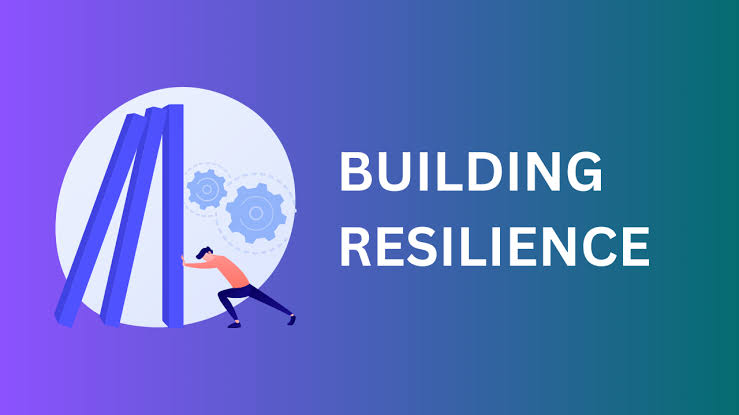Life is filled with uncertainties, obstacles, and unforeseen disruptions. Whether it’s the loss of a job, a failed business, personal trauma, or a global crisis, challenges are inevitable. What sets individuals apart is not the absence of hardship, but their ability to respond and recover. This is the essence of resilience — the mental, emotional, and behavioral strength to cope with adversity, adapt to change, and keep moving forward.
In a fast-paced and often unpredictable world, especially as of July 2025, developing resilience is more important than ever. It is not a fixed trait but a dynamic skill that can be nurtured and strengthened over time.
Understanding What Resilience Truly Means
Resilience is often misunderstood as simply “bouncing back” after a tough time. In reality, it goes beyond returning to a previous state. It involves growing through difficulty, gaining insights, and even finding new meaning in the struggle.
Rather than avoiding pain, resilient individuals face it head-on, allowing it to shape their inner fortitude. They acknowledge their emotions, process them constructively, and develop a flexible mindset to deal with both current and future difficulties. Resilience is therefore a combination of mental strength, self-awareness, adaptability, and emotional intelligence.
The Psychological Foundations of Resilience
Several core psychological traits support resilience:
- Self-efficacy: Belief in your own ability to influence events and outcomes. People who trust in their problem-solving skills tend to recover more quickly from setbacks.
- Optimism: A hopeful, forward-looking perspective encourages proactive coping. Optimism doesn’t mean ignoring the negative; it means believing that setbacks are temporary and surmountable.
- Emotional regulation: The ability to manage intense emotions, such as fear or anger, without being overwhelmed or shut down.
- Cognitive flexibility: Being open to new solutions, perspectives, and ways of thinking during hard times is essential for recovery and adaptation.
Practical Ways to Cultivate Resilience
Resilience can be learned and practiced. Here are some key strategies to build and sustain it:
1. Strengthen Your Support Network
Connection is critical during tough times. Cultivating strong relationships with family, friends, mentors, or support groups provides emotional nourishment and perspective. When you feel seen and supported, you’re more likely to navigate challenges without isolation or despair.
- Reach out for help when needed
- Offer support to others in return
- Prioritize genuine connections over superficial ones
2. Practice Self-Compassion
During adversity, many people turn inward with harsh self-criticism. But resilience grows when we treat ourselves with the same kindness we’d extend to a friend.
- Accept that failure and hardship are part of life
- Allow yourself to feel, grieve, or struggle without judgment
- Replace inner criticism with constructive, affirming thoughts
3. Reframe Negative Thinking
Cognitive reframing is the ability to view situations from a different, more empowering angle. This is a cornerstone of resilience.
- Ask yourself what you can learn from the challenge
- Focus on what you can control instead of dwelling on what you can’t
- Turn “Why me?” into “What now?”
Over time, this habit helps you remain hopeful and motivated even in dark moments.
4. Set Small, Achievable Goals
Big problems can feel overwhelming, especially when the path forward is unclear. Resilience is built by taking small, manageable steps toward progress.
- Break down complex issues into smaller parts
- Celebrate small wins and milestones
- Use goal setting as a way to regain momentum
Taking action—even imperfect action—restores a sense of control and self-direction.
5. Take Care of Your Physical Body
The mind and body are deeply interconnected. Physical health supports emotional stability and cognitive clarity.
- Get consistent sleep to restore your nervous system
- Exercise regularly to release stress and boost mood
- Maintain proper nutrition and hydration
- Practice relaxation techniques like breathing, meditation, or yoga
When your body is strong, your mind is better equipped to manage stress.
Learning from Past Adversity
Another key component of resilience is reflection. Look back at previous hardships you’ve faced. What helped you get through them? What strengths or insights did you gain? Reflecting on your own history of perseverance reinforces your ability to handle current or future difficulties.
Journaling, therapy, or conversations with trusted individuals can help process the past and extract valuable lessons. These lessons become the emotional foundation on which future resilience is built.
Embracing Change as a Constant
Part of building resilience is accepting that change is not a threat, but a constant part of life. Those who resist change often feel helpless and stuck. Resilient individuals, on the other hand, develop a growth mindset that allows them to adapt rather than break.
- Stay curious and open-minded about what change might bring
- Focus on adaptability, not perfection
- Remind yourself that nothing lasts forever — neither good nor bad moments
This mindset not only increases your ability to survive change, but to thrive within it.
Encouraging Resilience in Others
Resilience isn’t just personal — it’s collective. Families, communities, and teams also benefit when individuals lift each other up during hard times. You can help build resilience in others by:
- Listening without judgment
- Sharing your own stories of resilience
- Encouraging problem-solving over passive waiting
- Reminding others of their strengths and past victories
Creating environments that promote safety, support, and growth strengthens everyone’s ability to overcome adversity.
Conclusion
Resilience is not about being untouched by difficulty; it’s about being transformed by it. In our unpredictable and often challenging world, cultivating resilience allows us not only to endure setbacks but to grow through them. With time, support, and deliberate practice, anyone can build the internal strength needed to weather life’s storms.
When you choose to respond to hardship with courage, self-awareness, and action, you reclaim your power. Resilience becomes not just a trait, but a way of life — one that empowers you to face the future with greater hope and determination.



